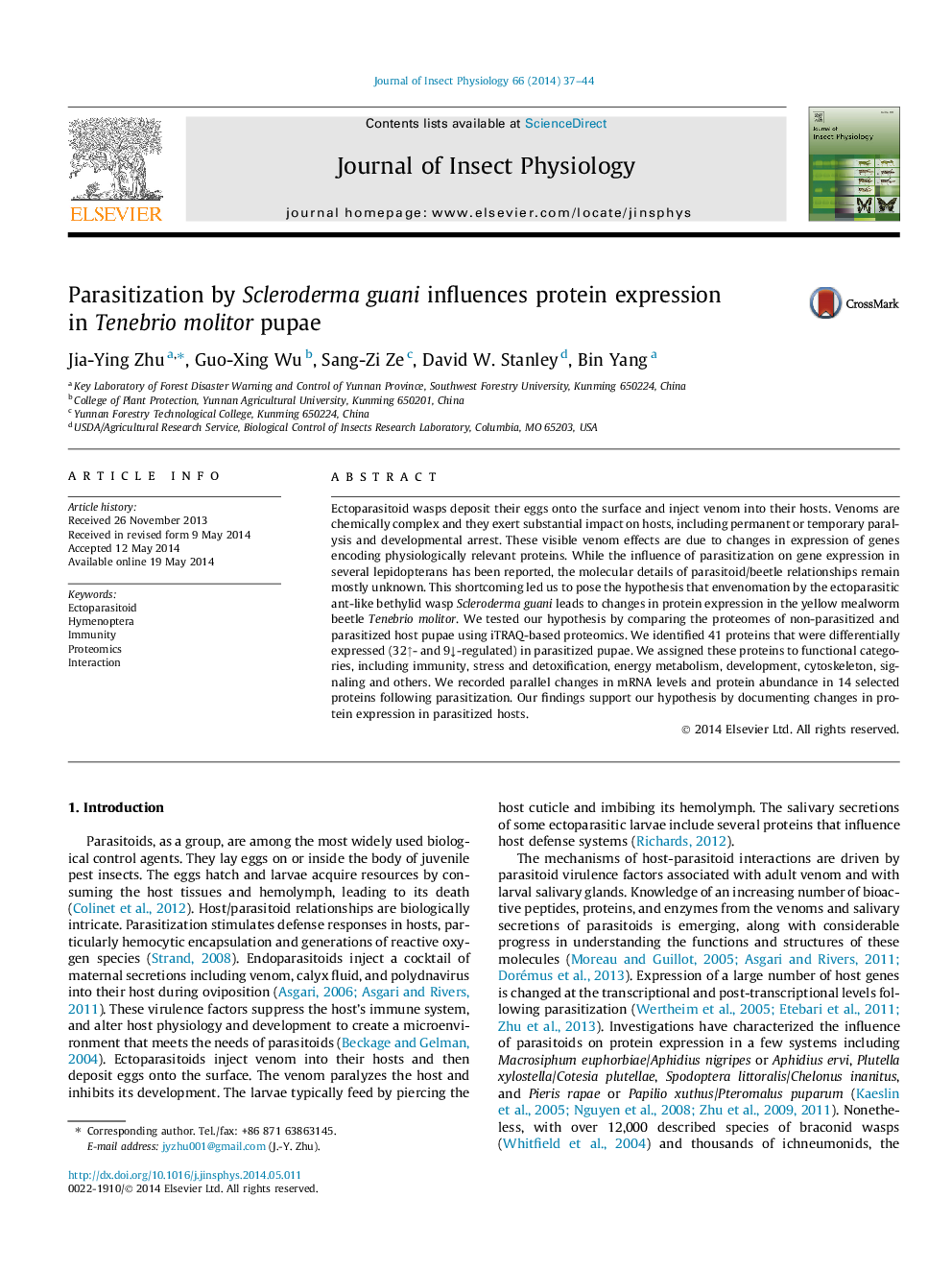| کد مقاله | کد نشریه | سال انتشار | مقاله انگلیسی | نسخه تمام متن |
|---|---|---|---|---|
| 5921662 | 1571004 | 2014 | 8 صفحه PDF | دانلود رایگان |

- Parasitization by S. guani changed expression of 41 T. molitor proteins.
- Changes in protein expression were parallel to changes in mRNA transcription.
- Parasitoids influence their hosts' physiology via host protein expression.
Ectoparasitoid wasps deposit their eggs onto the surface and inject venom into their hosts. Venoms are chemically complex and they exert substantial impact on hosts, including permanent or temporary paralysis and developmental arrest. These visible venom effects are due to changes in expression of genes encoding physiologically relevant proteins. While the influence of parasitization on gene expression in several lepidopterans has been reported, the molecular details of parasitoid/beetle relationships remain mostly unknown. This shortcoming led us to pose the hypothesis that envenomation by the ectoparasitic ant-like bethylid wasp Scleroderma guani leads to changes in protein expression in the yellow mealworm beetle Tenebrio molitor. We tested our hypothesis by comparing the proteomes of non-parasitized and parasitized host pupae using iTRAQ-based proteomics. We identified 41 proteins that were differentially expressed (32â- and 9â-regulated) in parasitized pupae. We assigned these proteins to functional categories, including immunity, stress and detoxification, energy metabolism, development, cytoskeleton, signaling and others. We recorded parallel changes in mRNA levels and protein abundance in 14 selected proteins following parasitization. Our findings support our hypothesis by documenting changes in protein expression in parasitized hosts.
Journal: Journal of Insect Physiology - Volume 66, July 2014, Pages 37-44